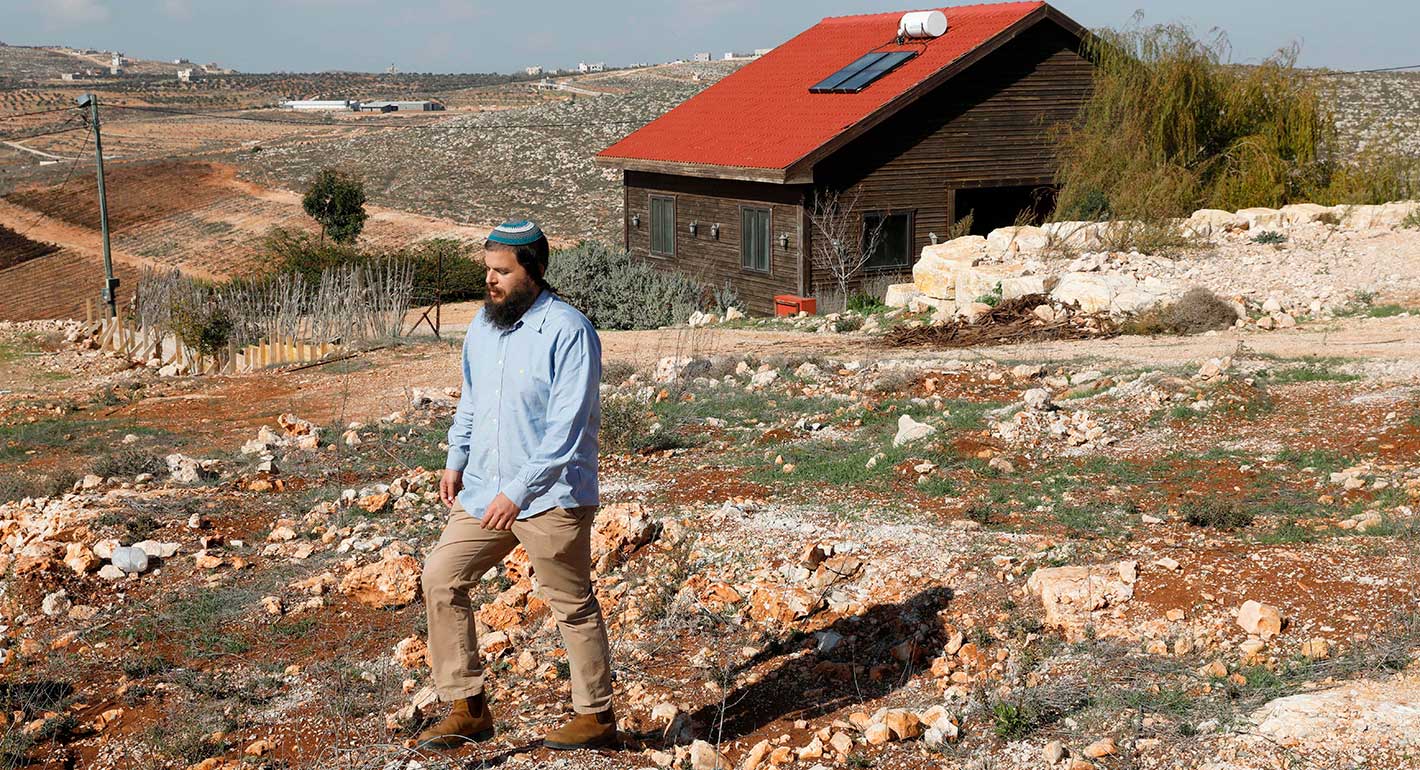Zaha Hassan
{
"authors": [
"Zaha Hassan"
],
"type": "commentary",
"centerAffiliationAll": "",
"centers": [
"Carnegie Endowment for International Peace",
"Malcolm H. Kerr Carnegie Middle East Center"
],
"collections": [],
"englishNewsletterAll": "",
"nonEnglishNewsletterAll": "",
"primaryCenter": "Carnegie Endowment for International Peace",
"programAffiliation": "",
"programs": [],
"projects": [],
"regions": [
"Middle East",
"Israel",
"Palestine",
"Levant"
],
"topics": [
"Political Reform",
"Democracy"
]
}
Source: Getty
Airbnb Stopped Listing Rentals in the Occupied West Bank. It Hasn’t Gone Far Enough.
Airbnb says it will no longer list properties to rent in the occupied West Bank. Other companies will be watching to see what happens next.
Airbnb recently announced that it would no longer allow listings located in the occupied West Bank. Although the decision attracted controversy, it was in fact carefully hedged, and made after consultation with experts.
Yet the ban does not go far enough. Properties in occupied East Jerusalem (a part of the West Bank), and the occupied Golan Heights, are exempt.
This distinction is difficult to reconcile. Under international law, all settlements in occupied territory are illegal, constituting war crimes under the Fourth Geneva Convention and the Rome Statute of the International Criminal Court.
Israel’s annexation of East Jerusalem and the Syrian Golan Heights does not change this. The extension of Israeli civil law there is invalid under international law. The UN Security Council most recently reaffirmed this with respect to East Jerusalem in 2016 in Resolution 2334. Last week, the UN General Assembly also reiterated that Israel has no right to extend sovereignty in either Jerusalem or the Golan Heights.
Apparently, illegality of possession is not enough for Airbnb to remove properties from its listings. While offering no explanation for excluding East Jerusalem and the Golan Heights from its decision, Airbnb said that its new criteria for de-listing included: (1) potential safety concerns; (2) the opinion of experts and community stakeholders; (3) the extent listings contributed to human suffering; and (4) the direct connection the listings have to the larger dispute.
Even by Airbnb’s own criteria, properties in settlements in East Jerusalem and the Golan Heights should have also been struck off the list. By its very nature, the occupation denies people their basic human rights. Forced removal of an occupied people and the transplantation of settlers in their place causes deep human suffering.
Because Israel’s settlement policy involves home demolitions, forced evictions, and revoking residency rights, Airbnb’s business of organizing home rentals in settlements is directly connected to a larger dispute—Israel’s military occupation and its associated human rights violations. It is not a tangential matter.
Palestinian Jerusalemites, in particular, are among the most likely to be dispossessed, according to the UN Office for the Coordination of Humanitarian Affairs. The city of Jerusalem’s Master Plan encourages this displacement by limiting the number of Palestinians who can live in the city to just 40 percent of the city’s population.
U.S. citizens who have listed homes in the occupied West Bank have filed suit against Airbnb alleging discrimination. They may have just opened themselves to legal action from the legal Palestinian owners, who could seek to intervene as interested parties.
People on both sides of the argument will continue to pressure Airbnb to revise its decision. Those opposed to the de-listing of properties in West Bank settlements have described the company’s decision as “corporate anti-Semitism“ and called for a boycott of the platform. Other tourism and property listing platforms are watching to determine which way the wind of customer dollars will blow. So far, Booking.com has indicated that it has no plans to change its current policy of allowing dealings with settlements. Ultimately, the corporate bottom line, rather than international law, will decide whether settlement properties continue to be advertised on such platforms.
About the Author

Senior Fellow, Middle East Program
Zaha Hassan is a human rights lawyer and a senior fellow at the Carnegie Endowment for International Peace.
- By Endorsing the U.S. Gaza Plan, the UN Security Council Elevates “Rule by Law” Over Rule of LawArticle
- Is the U.S.-Israel Gaza Peace Plan a Deal or a Distraction?Commentary
Zaha Hassan
Recent Work
Carnegie does not take institutional positions on public policy issues; the views represented herein are those of the author(s) and do not necessarily reflect the views of Carnegie, its staff, or its trustees.
More Work from Carnegie Endowment for International Peace
- The Gulf Monarchies Are Caught Between Iran’s Desperation and the U.S.’s RecklessnessCommentary
Only collective security can protect fragile economic models.
Andrew Leber
- Duqm at the Crossroads: Oman’s Strategic Port and Its Role in Vision 2040Commentary
In a volatile Middle East, the Omani port of Duqm offers stability, neutrality, and opportunity. Could this hidden port become the ultimate safe harbor for global trade?
Giorgio Cafiero, Samuel Ramani
- Europe on Iran: Gone with the WindCommentary
Europe’s reaction to the war in Iran has been disunited and meek, a far cry from its previously leading role in diplomacy with Tehran. To avoid being condemned to the sidelines while escalation continues, Brussels needs to stand up for international law.
Pierre Vimont
- What We Know About Drone Use in the Iran WarCommentary
Two experts discuss how drone technology is shaping yet another conflict and what the United States can learn from Ukraine.
Steve Feldstein, Dara Massicot
- Axis of Resistance or Suicide?Commentary
As Iran defends its interests in the region and its regime’s survival, it may push Hezbollah into the abyss.
Michael Young









